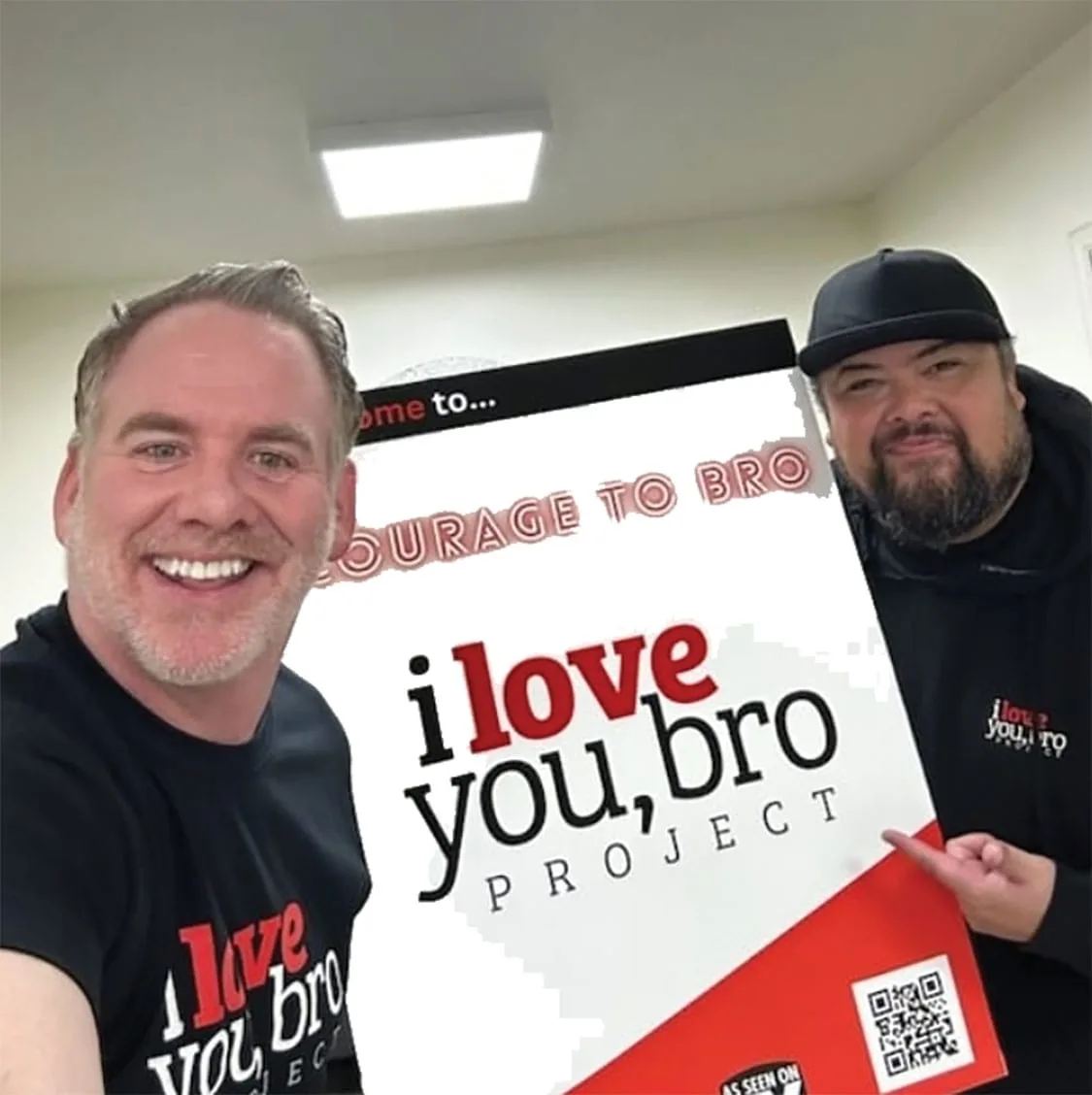It was 2022 when Joe Tuia’ana was driving to a basketball game with his two daughters. At the time, he was recovering from a bout of pneumonia brought on from a case of COVID-19. He was also still dealing with the guilt and grief he felt about his best friend’s death from suicide five years earlier. So, when Tuia’ana saw a young man walking along a freeway overpass, clearly distressed, he recognized the signs of someone in the midst of a suicidal crisis.
Tuia’ana pulled over and left his car and talked to the man in what he now refers to as, “loving him off the ledge.”
A year later, the man Tuia’ana helped off the overpass in the middle of a crisis is a close personal friend – often referring to him as his little brother.
Today, Tuia’ana has immersed himself in the world of suicide prevention and men’s health, creating the Utah County-based organization called, I Love You, Bro.
“I just felt like I had to do more,” Tuia’ana said. “People always tell me my experience was such a beautiful story—and it is—but the question that comes after is ‘why did it even have to get that bad?’, ‘why did it even have to get to the overpass?’.”
With the creation of the I Love You, Bro Project, Tuia’ana is less interested in talking someone else off the ledge. Instead, he’d rather help that person a long time before it ever reaches that point. To do that, I Love You, Bro has started two new initiatives in Utah County. Beginning in the month of November, Tuia’ana has started Courage to Bro support groups that offer opportunities for men to talk, vent, and come together in a safe, understanding, accessible environment.
“When I first started looking for what men could do for help—not even men in a crisis, just men who needed help in a stressful time – I only found a few options in Utah,” Tuia’ana said. “They were all retreat-based, where somebody could pay $3,000 to $6,000 to go out with a group of guys for a few days and come back feeling better. But what if somebody doesn’t have that kind of time, that kind of money?”
The second initiative from the project is the creation of Let’s Grow, Bro, classes. These are simple trainings that men can attend dealing with marriage, divorce, finances, and more. The classes are meant to build fundamental relationships and skills, allowing men to find strength and help through others so that suicide is never an option.
The Courage to Bro support groups are in their early stages, with plans to grow, but for now they meet every Wednesday night. The Let’s Grow, Bro classes are set to begin soon with more information coming on the project’s website, iloveyoubro.net.
The I Love You, Bro project is just getting started, and it’s a good time for it since Movember is taking place as a monthlong initiative to bring awareness to men’s health. This annual event takes place during the month of November, and is most often celebrated by men growing mustaches to raise awareness and funds for various men’s health issues, particularly prostate cancer, testicular cancer, and mental health challenges. The month provides a platform for discussing topics that are often considered taboo but are crucial for the overall health of men, especially as the mental health crisis grows increasingly dire.
“I never want to pretend like I know everything about suicide prevention or mental health,” Tuia’ana said. “I want to come at it with an ‘Average Joe’ perspective, and I want to make it so easy to participate that anyone can just go on to the website and sign up. I want to make it very easy.”
In 2021, more than 47,000 people in the United States died by suicide – 38,025 of those were men. In the United States, the suicide rate for men is four times higher than it is for women, which is a disparity that has continued to grow. For every 100,000 men between the ages of 45 and 54, 28 of them die by suicide. For men ages 15 to 19, the number drops to nine out of every 100,000, but for people like Tuia’ana fighting for change, and those who are affected, even those numbers are too high.
Suicide is the tenth leading cause of death in the United States, with 1.38 million suicide attempts a year. While unemployment and divorce exponentially increase the risk of suicide rate for men, 90 percent of those who died by suicide had a diagnosable mental health condition at the time of their death. Only one in four men who report daily feelings of depression or anxiety have spoken to a mental health professional. And while men have four time the suicide rate as women, women have double the reported rate of depression.
The statistics highlight the urgency of the matter and mental health continues to be one of the primary areas of concern for Utah. According to the Utah Department of Health, suicide remains a significant issue in the state.
For anyone who is in a crisis state, Tuia’ana says that 988, the suicide and crisis lifeline, is the best resource. Utah County also offers a crisis line for anyone experiencing thoughts of suicide or self-harm and can be reached at 1-800-273-TALK (1-800-273-8255). Available 24/7, the Utah County Crisis Line provides immediate assistance to individuals facing a mental health crisis or those at risk of suicide. Trained professionals are ready to listen and offer support.



